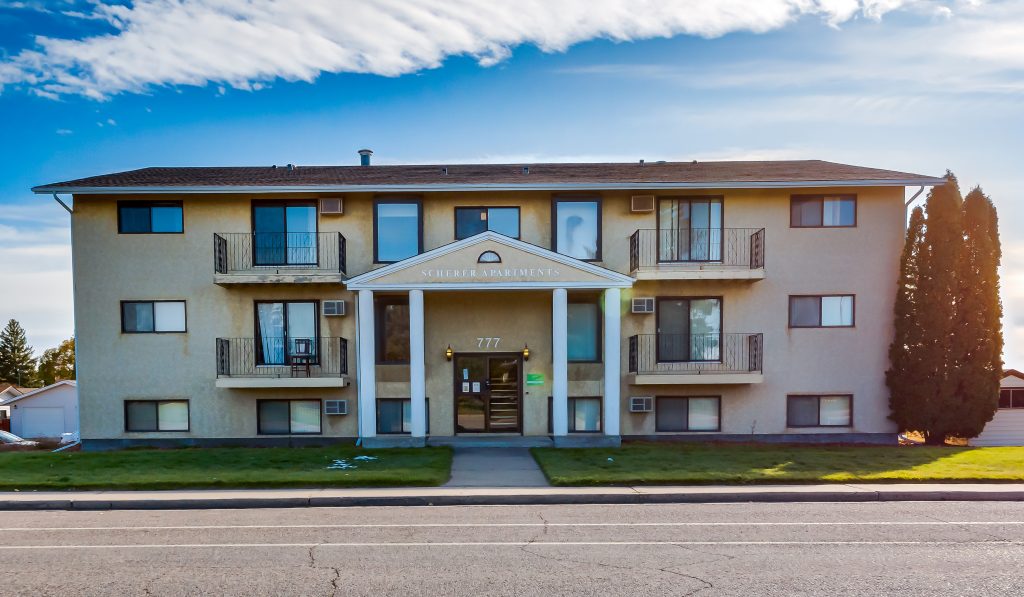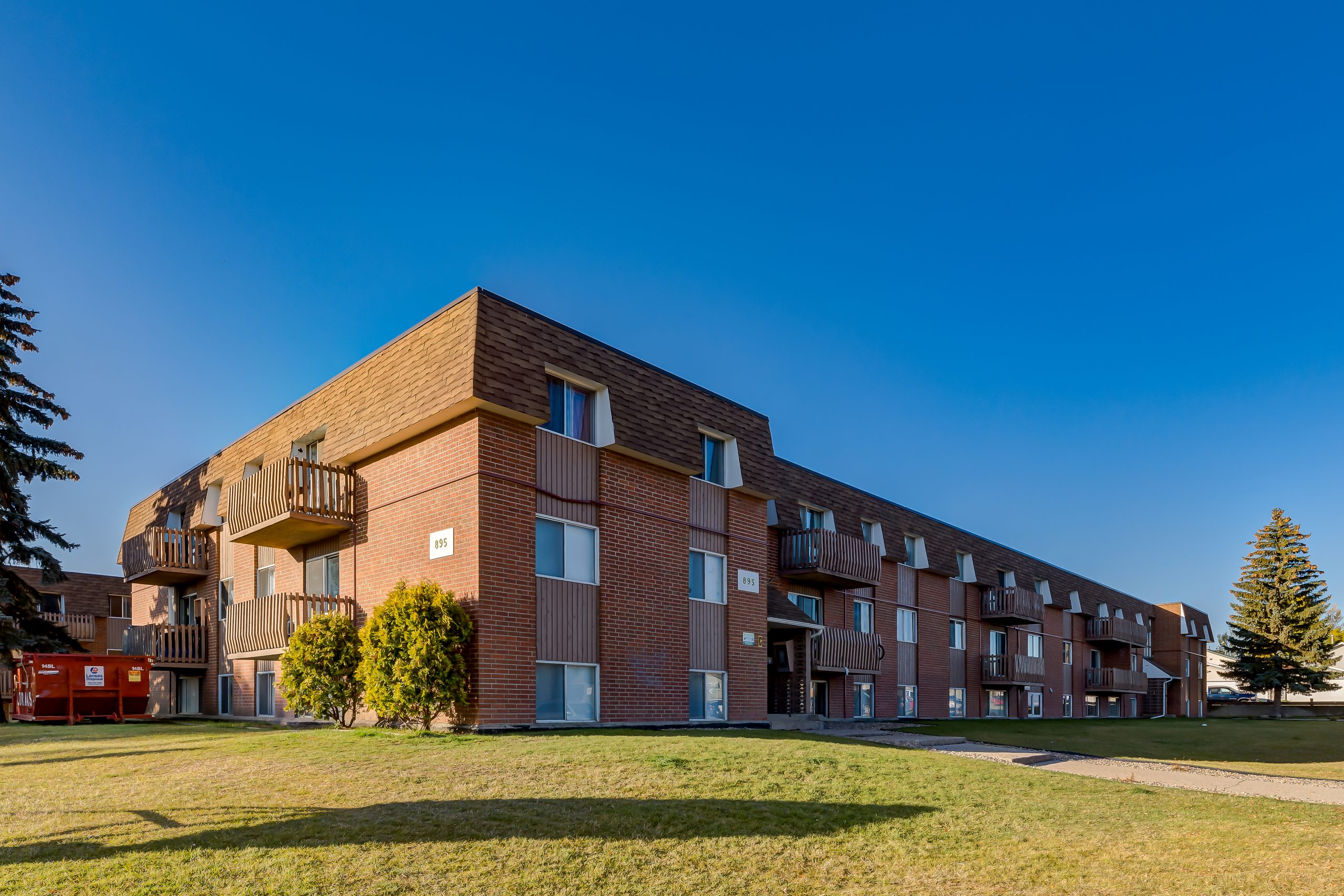The pandemic has had devastating consequences for many Canadian industries, the rental housing sector being one of them. Faced with higher operating costs, unprecedented vacancies, and prolonged periods of lower monthly income, smaller landlords in particular were heavily tested by COVID, and many continue to claw their way back to profitability. Then there are companies like Calgary-based Avenue Living, a thriving asset management firm that not only survived the onerous conditions of the pandemic, but emerged all the stronger for them. The reason? A sound investment strategy that favours Class B and C assets catering to what it calls “Canada’s stable and tenacious” workforce.
 “We have built an operating platform that focuses on serving our residents first,” says Anthony Giuffre, Founder, Chief Executive Officer and Executive Chairman at Avenue Living Group of Companies. “For over 16 years we have focused on assets and markets that serve the workforce housing demographic made-up of residents who earn between $15 and $50 an hour.”
“We have built an operating platform that focuses on serving our residents first,” says Anthony Giuffre, Founder, Chief Executive Officer and Executive Chairman at Avenue Living Group of Companies. “For over 16 years we have focused on assets and markets that serve the workforce housing demographic made-up of residents who earn between $15 and $50 an hour.”
This demographic includes essential workers and frontline employees from the service and health care sectors, as well as supply and logistics, and infrastructure workers—a segment Giuffre refers to as one of the most stable populous bases in Canada.
“From the beginning, we have seen the potential in Class B and C assets,” he says. “We’ve always invested in the fundamentals, and we’ve made sure we built a nimble team that can respond to new opportunities as they come up. What we recognized early, and what we still live by, is that our business must put operations first to make any investment successful. The ability to pivot when necessary, along with the 10,000 mistakes we’ve made on our journey, has helped us formulate the Avenue Living platform into one I would consider best-in-class—a platform filled with the best and the brightest continuously seeking a better way through investment in its people, technology, and assets.”
And those are not empty words, as the last two years have illustrated. Like all successful businesses, Avenue Living had to pivot quickly to remote operations while responding to federal and provincial health measures. Having a strong technological backbone allowed it to implement urgent new steps quickly and seamlessly, shifting to virtual viewings and digital communications without the upfront challenges other property management teams faced.
Moreover, it never once deviated from its strategy. “We stuck to the fundamentals and continued to seek out Class B and C assets in markets that showed potential for stability and growth,” says Giuffre. “Our platform has been key to our growth. It has allowed us to bring almost everything in-house, increasing our efficiency and effectiveness. We have teams that provide accounting, finance, human resources, marketing and legal services, as well as a group of underwriters, analysts, and customer service specialists. We even have our own engineering and project management teams. These are services most operators don’t have at their disposal—and having them in-house allows us to capture a majority of the value chain and take advantage of opportunities as they arise.”
Market trends and opportunities
Most major rental markets took a nose-dive in 2020, and Alberta markets were no different. According to CMHC’s 2021 Housing Outlook Report, Calgary was hit especially hard due to its exposure to the energy sector and significant job losses incurred by the pandemic, all things contributing to high apartment vacancies not seen since 2017. Like elsewhere in Canada, tenants who suddenly found themselves working from home began leaving the downtown core in droves in seek of cheaper rent and more space—a trend that worked in Avenue Living’s favour.
“We’ve seen a lot of reverse urbanization,” says Giuffre. “People are moving to smaller centres, and they’re placing more value on space because they’ve been spending more time at home. The buildings we invest in are often older and have larger floorplans than new builds. We find there’s more occupancy pressure in the older stock, and we’ve seen a shift in focus and expectations, as well. Residents expect to have a more complete experience now. They’re home more and they’re expecting more from their property manager. They expect quick response times and open lines of communication.”
They also expect more bang for their buck when it comes to the units themselves. In that respect, Avenue Living says it is ahead of the game — the majority of its rental portfolio consists of older properties, which often offer more space and established community amenities like transit, schools, and shopping.
“We choose assets for which capital investment makes sense,” Giuffre explains. “That is, whatever will get us the most value for our investment dollar. The assets we often choose are in great locations but may be older buildings that require some maintenance upgrades like roofing or heating systems.”
With each building upgrade driven by three main goals—to make residents’ homes safer, more comfortable, and to provide value to investors—Giuffre says every capital investment is the result of careful analysis: “We primarily look for assets where we can add investment into the common spaces and outdoor areas. For example, we put in a playground at one of our properties in Lethbridge. This gives residents a safe, comfortable place to gather and our investors an incremental return through rent accretion.”
 Opportunities in a fragmented market
Opportunities in a fragmented market
While COVID has created a challenging landscape for many, Avenue Living is in a great position to forge ahead and sees plenty of opportunity for growth within the market and demographics it serves.
“Over 70 per cent of the rental universe is fragmented under various management styles, and there’s a massive changing of the guard happening in multifamily residential real estate,” says Giuffre. “There is a big difference between passive ownership and active ownership. Antiquated methods of managing low-density property, including mom-and-pop and the live-in caretaker model, are being phased out.”
A lot of small operators are ready to pass their assets down to the next generation—but, as Giuffre points out, the next generation is not necessarily interested in the headache of managing a property. At the same time, the older generation is not interested in making the necessary investment in the buildings or the tech needed to compete in today’s operating environment. “So we’re moving forward,” he says, “consolidating this fragmented industry and bringing best-in-class operations with it. Our pipeline for potential new purchases across our five mandates is over $1 billion across Canada and the United States.”
Opportunities in proptech & ESG
Meanwhile, Avenue Living also has its sights set on disruptive technologies that will help it improve and build customer relations.
“We’re interested in how proptech can help us improve operations and the resident experience,” says Giuffre. “In the past, the real estate industry has been slow to adopt new technology, but we feel that with the generational shift and pressure from value-conscious residents, proptech is really going to present value-add opportunity. Our investment in that area is going to be a long-term differentiator for us.”
Additionally, Giuffre says Environmental, Social & Governance has become a big part of Avenue Living’s “go-forward” strategy, with the company having recently executed some exciting pilot projects around energy and water conservation. “We’re looking for ways to reduce our carbon footprint,” he says. “We’re excited to explore the possibilities of renewables, for example, implementing solar panels on our rooflines.”
And while there continues to be significant opportunity for growth here in Canada, the group also has its eye on the U.S. where it currently owns properties in Cincinnati, OH, Colorado Springs, CO, Kansas City, KS and Madison, WI. Excited at the prospect of expanding further south of the border, Giuffre concludes: “We are proud of the accretive growth we have experienced from all our funds. Furthermore, the demand we’re seeing from the capital markets shows that our business strategy is striking the right tone with investors. Ultimately, I’d like us to continue to expand the size of our portfolio and continuously improve how we operate, both of which are highly correlated. That’s our commitment to our residents and investors.”
About Avenue Living
Since 2006, Avenue Living has grown from a single investment to managing over $3.0 billion in assets, including workforce housing, commercial real estate, farmland, and self-storage. As of September 2021, the Calgary-based firm owns and operates over 13,000 residential rental units in Western Canada and the United States.





